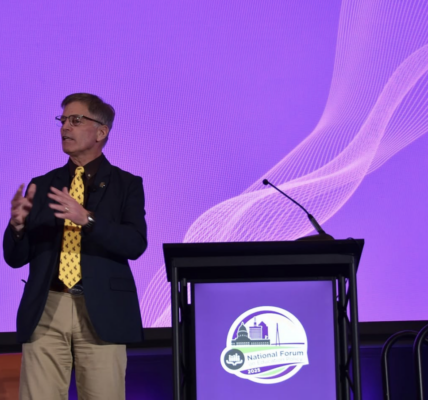
By Jasmine Hall
Wyoming Tribune Eagle
Via- Wyoming News Exchange
CHEYENNE —The future of a bill in the Wyoming Legislature that extends Medicaid coverage for residents up to a full year postpartum was determined by one vote on Friday.
Members of the House Labor, Health and Social Services Committee narrowly pushed forward House Bill 4 in a 5-4 vote. Lawmakers made the decision at the end of the committee’s second meeting dedicated to the bill, which was preceded by lengthy public testimony and questioning from new state representatives.
The postpartum coverage bill was sponsored by the Joint Labor Committee during the interim, and is the result of continuous coverage for Medicaid enrollees coming to an end. States were required to provide continuous coverage during the COVID-19 public health emergency, in order to be eligible for federal matching funds under the Families First Coronavirus Response Act.
However, states may resume Medicaid dis-enrollment starting April 1, including mothers who are past the standard 60-day mark for postpartum coverage. This has led to action across the nation from states such as Hawaii, Maryland, Ohio and Florida, which were approved by the U.S. Department of Health and Human Services to extend their coverage to 12 months.
National advocates argue it can help address maternal mortality and “boost maternal health for low-income women.” These were opinions held by Wyoming stakeholders, as well, from the Catholic Diocese of Cheyenne to the Wyoming Hospital Association.
“The best way to support the baby is to support the mom,” said Dr. Rene Hinkle, co-founding partner at Cheyenne Women’s Clinic.
Hinkle has been practicing in Cheyenne for nearly two decades, and she used her experiences as reasons to pass the bill.
She said there are many medical complications that can come up in the first year after giving birth, such as sepsis or heart conditions following pregnancy.
“There’s a story of a woman who we recently delivered here 11 weeks ago, so she’s outside of that 60-day window,” ” Hinkle said. “She went into the emergency room this weekend with a severe pulmonary embolism clot in her lung that could have killed her, and, luckily, did not. But during the workup for that, they also found problems with her heart.”
The studies showed that her heart is working at 30% less than what it should be, and the damage was caused by the pregnancy. She said pregnancy is not benign, and there are serious health risks that come before and after birth.
“That’s probably a $50,000 workup that she’s going through with treatment,” she said. “And if she was not still on Medicaid, she would not be able to afford that and could pass away.”
This was an extreme case witnessed by Hinkle, but she said care as simple as postpartum screenings could be impossible without coverage.
There are consequences for those without proper medical assistance. According to data collected by the Wyoming Community Foundation, one out of five women in Wyoming received less-than-adequate prenatal care in 2020, and the percentage of babies born at a low birth weight increased to 10%. “An additional concern is the rising rate of maternal mortality seen across the United States, including Wyoming,” the foundation wrote on maternal health. “In 2019, Wyoming’s maternal mortality rate rose to 34.8 deaths per 100,000 lives birth—up from 24.6 deaths per 100,000 live births in 2018.”
This was an increase of 42%, and pregnancy-related deaths in the U.S. are much higher for American Indian/Alaska Native and Black women than for white women. One in 10 maternal deaths also occur between six weeks to one year postpartum, and three in five pregnancy- related deaths are preventable.
Postpartum coverage under Medicaid isn’t just for women’s health care, though. Mothers can go to the doctor if they break a leg, or even if they’re hoping to receive mental health services. Multiple mental health care providers spoke to the impacts of postpartum depression and the loss caused by suicide.
“One of the things that we see with women that are postpartum is they might come with mental health concerns, but they also have physical health concerns. That comorbidity and the importance of treating both in integrated care is critically important to recovery,” said Wyoming Association of Mental Health and Substance Abuse Centers Executive Director Andi Summerville. “A mental health condition can drive physical health issues, and vice versa.”
While there was recognition by many attending the committee meeting that postpartum care was important, it was not enough to sway some legislators.
Newly elected Rep. Jeanette Ward, R-Casper, said she would not vote in support of the bill or its $1.9 million appropriation. She said children are already covered, with or without the extension, and mothers can find other programs. Ward also argued that the pandemic was used as a justification for expanding Medicaid, and entitlement programs are nearly never rolled back.
“In addition to what I’ve already said, arguing that if you’re pro-life, you have to be for the expansion of entitlement programs doesn’t follow,” she said. “Cain commented to God, ‘Am I my brother’s keeper?’ The obvious answer is no. No, I’m not my brother’s keeper, but just don’t kill him.”
The two other women on the House Labor Committee voted no, along with Rep. Ben Hornok, R-Cheyenne. He said he understood the program created a safety net for mothers and their children, but he wanted to go back to the system before the pandemic.
Rep. Sarah Penn, R-Lander, also congratulated those who attended the committee meeting, because she said it was a difficult discussion that comes with a lot of emotion. She said her no vote wasn’t a stand against women, because she was a woman who had been pregnant without insurance before.
“We’ve disused a lot of weaknesses with women, but I know that women are strong. There was the illusion a postpartum woman is going to be too overwhelmed to fill out a form to look for other opportunities, to see if there’s other coverage available in other places,” Penn said. “If we create situations where there’s always a safety net, where women don’t have to stand up and be strong—to show their strength—then the natural man in all of us falls back into that comfort and safety net.”
The postpartum coverage bill will now go to the House chamber floor for debate by all 62 representatives.




